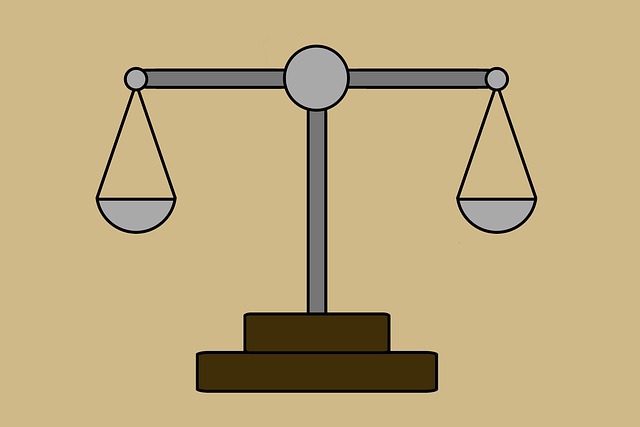The Federal Sentencing Guidelines for Drug Offenses serve as a cornerstone of US criminal justice, offering a structured approach to punish fraud in regulatory environments, from financial to environmental misconduct. Understanding these guidelines is vital for regulators and attorneys alike, with skilled legal minds navigating complexities to ensure fair sentencing. Businesses must prioritize transparency and adherence to laws, such as robust internal controls, to avoid severe penalties under these guidelines, including multimillion-dollar fines for sophisticated schemes like price reporting or market data manipulation. Effective law enforcement and prosecutors play a critical role in combating regulatory fraud, upholding integrity within regulated sectors, and fostering trust in the business environment.
Regulatory fraud, a subtle yet potent menace, poses significant challenges to businesses and governments worldwide. This article provides a comprehensive guide to navigating the complex landscape of regulatory fraud laws, with a particular focus on federal sentencing guidelines for drug offenses. We explore strategies to avoid such fraudulent activities and delve into real-world case studies to illuminate effective prosecution methods. Additionally, we examine the critical roles played by law enforcement and prosecutors in combating this pervasive issue, emphasizing the importance of robust regulatory frameworks in curbing drug-related fraud.
- Understanding Regulatory Fraud Laws: A Comprehensive Overview
- Federal Sentencing Guidelines for Drug Offenses: Key Provisions
- Strategies to Avoid Regulatory Fraud and Its Consequences
- Case Studies: Real-World Examples of Regulatory Fraud Prosecutions
- The Role of Law Enforcement and Prosecutors in Combating Regulatory Fraud
Understanding Regulatory Fraud Laws: A Comprehensive Overview

Regulatory fraud laws are designed to protect against deceptive practices that harm consumers, investors, and the public at large. These laws cover a wide range of activities, from financial misdeeds to environmental violations, and play a crucial role in maintaining the integrity of markets and industries. Understanding these laws is essential for both regulators and individuals looking to protect their rights. The Federal Sentencing Guidelines for Drug Offenses, for instance, provide clear parameters for sentencing, but their scope extends beyond drug cases, offering insights into how courts address fraud, especially in high-stakes cases involving complex regulatory environments.
A general criminal defense strategy must account for these laws to ensure clients’ legal rights are not compromised. Skilled attorneys specializing in this field help navigate the intricacies of regulatory fraud, advocating for their clients while adhering to the law. They assist in interpreting regulations, identifying potential violations, and developing robust defenses tailored to each unique case, thereby fostering a fair and just legal system.
Federal Sentencing Guidelines for Drug Offenses: Key Provisions

The Federal Sentencing Guidelines for Drug Offenses play a pivotal role in shaping penalties for individuals convicted of drug-related crimes across the country. These guidelines provide a structured approach to sentencing, taking into account various factors such as the type and quantity of drugs involved, the defendant’s criminal history, and their role in the offense. One of the key provisions is the enhanced sentencing for repeat offenders, which can significantly impact a defendant’s sentence, especially when facing serious drug charges.
Understanding these guidelines is crucial for crafting winning challenging defense verdicts. Lawyers often navigate complex scenarios where the difference between a severe sentence and a more lenient one lies in subtle nuances of the evidence presented and the specific circumstances of the case. Across the country, jury trials have highlighted the importance of detailed argumentation regarding sentencing disparities, ensuring that justice is served without bias or overreach.
Strategies to Avoid Regulatory Fraud and Its Consequences

To avoid regulatory fraud, businesses and individuals must prioritize transparency and compliance with governing laws. This involves implementing robust internal controls, regular training on ethical practices, and fostering a culture that discourages unethical behavior. Achieving extraordinary results through legitimate means requires a strong commitment to integrity throughout all aspects of the respective business.
Consequences of regulatory fraud can be severe, often leading to significant financial penalties under Federal Sentencing Guidelines for Drug Offenses and other applicable laws. Reputational damage is equally detrimental, as it can take years to rebuild trust with stakeholders. For corporate and individual clients alike, adhering to legal requirements and maintaining ethical standards are crucial to ensuring long-term sustainability and success in their respective business environments.
Case Studies: Real-World Examples of Regulatory Fraud Prosecutions

Regulatory fraud prosecutions are a significant aspect of maintaining integrity within businesses and industries heavily regulated by the government. These cases often involve sophisticated schemes designed to deceive regulatory bodies, and they carry substantial penalties under federal laws, including the Federal Sentencing Guidelines for Drug Offenses (FSG). One notable example is the case against a pharmaceutical company accused of inflating drug prices through false reporting of costs, leading to higher reimbursements from government healthcare programs. The company pleaded guilty and agreed to pay millions in fines and restitution, demonstrating the severity of such offenses.
Another compelling instance is when individuals within a financial institution conspired to manipulate market data, resulting in misled investors and unstable markets. This scheme was uncovered through internal investigations and led to multiple convictions. These real-world scenarios highlight the far-reaching consequences of regulatory fraud. The FSG provides sentencing enhancements for such offenses, taking into account the level of damage caused and any attempt at obstruction. Moreover, these prosecutions often involve jury trials, where the burden of proof lies on the prosecution to ensure a complete dismissal of all charges is not warranted. The impact resonates beyond financial penalties, affecting the reputation of philanthropic and political communities associated with the convicted entities.
The Role of Law Enforcement and Prosecutors in Combating Regulatory Fraud

Law enforcement and prosecutors play a pivotal role in combating regulatory fraud, which often involves complex white-collar and economic crimes. They are responsible for investigating and prosecuting individuals and organizations that engage in fraudulent activities aimed at evading or subverting regulatory requirements. These efforts are guided by legal frameworks such as the Federal Sentencing Guidelines for Drug Offenses, which provide a structured approach to sentencing, ensuring consistency and proportionality in cases involving drug-related crimes and other regulatory violations.
By leveraging their expertise and resources, law enforcement agencies can uncover and dismantle fraudulent schemes, while prosecutors work diligently to secure convictions. Achieving extraordinary results in these cases is crucial not only for deterring future misconduct but also for protecting the integrity of regulatory systems. Effective collaboration between these entities is essential to avoid indictment and ensure that those who commit regulatory fraud are held accountable, ultimately fostering a more trustworthy business environment.
Regulatory fraud laws play a vital role in upholding the integrity of our drug regulatory system. By understanding these laws, as highlighted in this comprehensive overview, businesses and individuals can implement effective strategies to avoid costly consequences. The Federal Sentencing Guidelines for Drug Offenses serve as a powerful tool to deter and punish fraudulent activities, ensuring compliance and public safety. Through real-world case studies and the crucial contributions of law enforcement and prosecutors, we gain insights into navigating these complex regulations. Staying informed and proactive is essential to mitigate risks and foster a culture of ethical conduct within the pharmaceutical and regulated industries.






